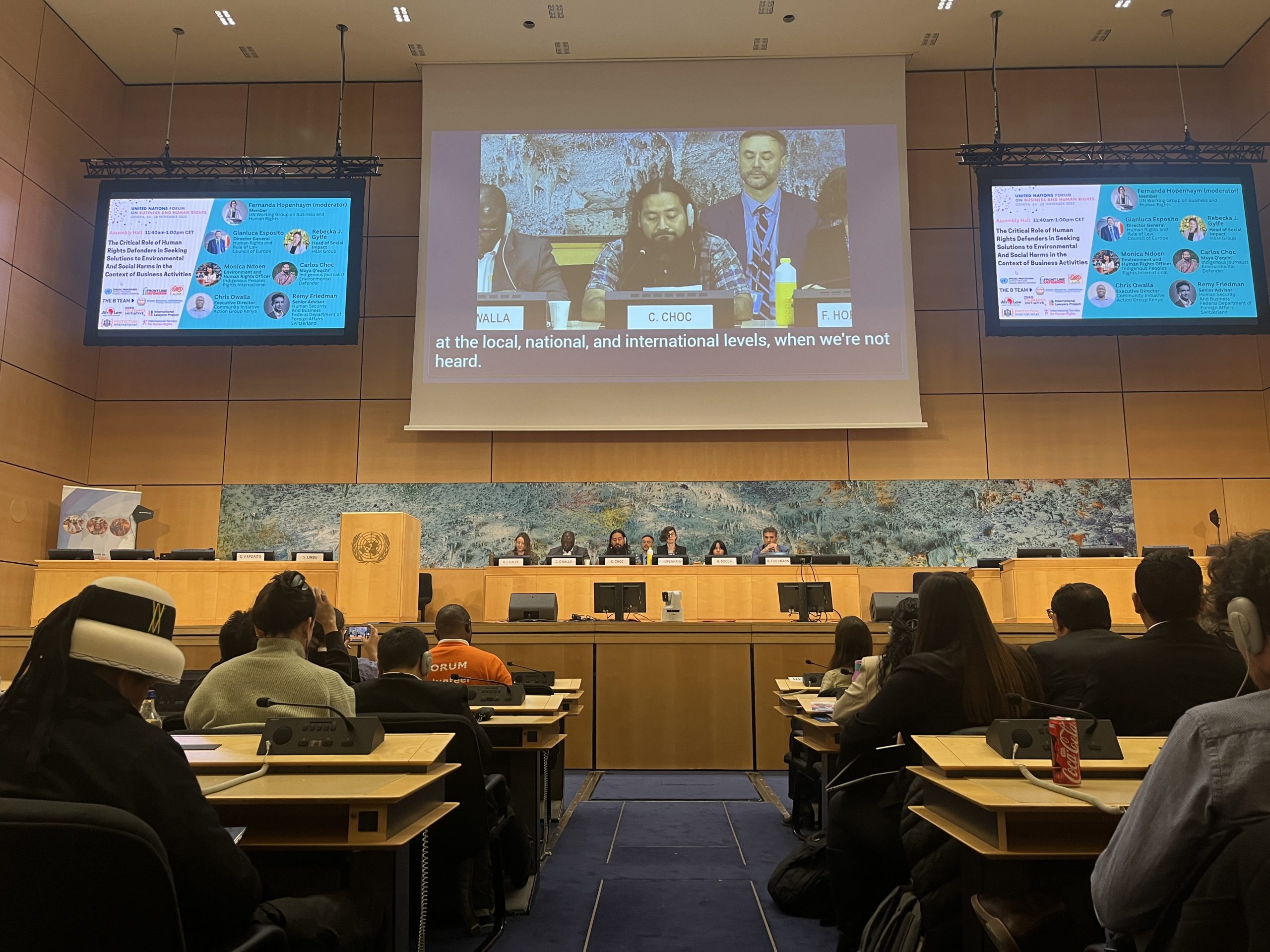(Geneva) – The Brazilian government must take urgent measures to guarantee the security of members of the Forum Suape Social Environmental Space, as well as community members denouncing human rights abuses linked to the Industrial and Harbor Complex of Suape (CIPS) megaproject, the International Service for Human Rights said today.
The Organisation called for a thorough investigation into the private security harassment of Forum Suape member Dr Conceição Lacerda, as well as wide-reaching measures to guarantee the security of activists working on corporate accountability in the country in general.
Dr Lacerda reported that she had suffered harassment, and her house put under surveillance, by members of the private security guards from the CIPS. Their agents had parked during the day in front of her house and filmed the interior, in an apparent attempt to intimidate Dr Lacerda. The individuals were using a vehicle from the CIPS. Dr Lacerda has recently documented and denounced corruption and human rights abuses related to the CIPS megaproject on a popular blog.
‘It is imperative that the Brazilian authorities take strong and urgent measures to guarantee the safety of Dr Lacerda and other human rights defenders working on issues associated to the CIPS,’ said ISHR’s Ben Leather. ‘It is also vital that they take measures to address the root causes of these human rights abuses and put into place precautionary measures to protect the community and activists from abuses whilst these causes are being addressed’. ISHR has previously given training and advocacy support to Forum Suape members.
Residents have complained the project has been imposed upon the community and will have drastically negative impacts upon their lifestyle and human rights, as well as the local environment. Meanwhile, Forum Suape has documented harassment and intimidation by private security companies associated with the business, against the community and those who oppose the megaproject. In May, Forum Suape denounced incidents of criminalisation and threats against trade unionists.
‘Unfortunately, these recent incidents of surveillance and harassment of Dr Lacerda are not isolated,’ said Mr Leather, ‘Brazil has previously taken important steps towards the protection of human rights defenders. However, it is now crucial that they be consolidated and their efficacy guaranteed, particularly for those most vulnerable activists’.
Last year, a Global Witness report showed Brazil to be the deadliest place to be an environmental defender, accounting for 448 (nearly half) of total deaths between 2002 and 2013. Meanwhile, at the biannual Human Rights Colloquium held by NGO Conectas in São Paulo last month, activists from across Brazil denounced abuses by the Brazilian police and security forces against those who protest for human rights protection.
Brazil has a National Programme for the Protection of Human Rights Defenders, but it has been criticised for failing to protect those most at risk in an effective and consistent manner. The Programme lacks resources; there is debate about whether the most adequate government bodies are currently charged with implementing protective measures, whilst critics argue that it has particularly failed those working on land and environmental rights.
Ben Leather [email protected],
Heitor Scalambrini ([email protected])
Rafaela Nicola ([email protected]) from Forum Suape Social Environmental Space.




